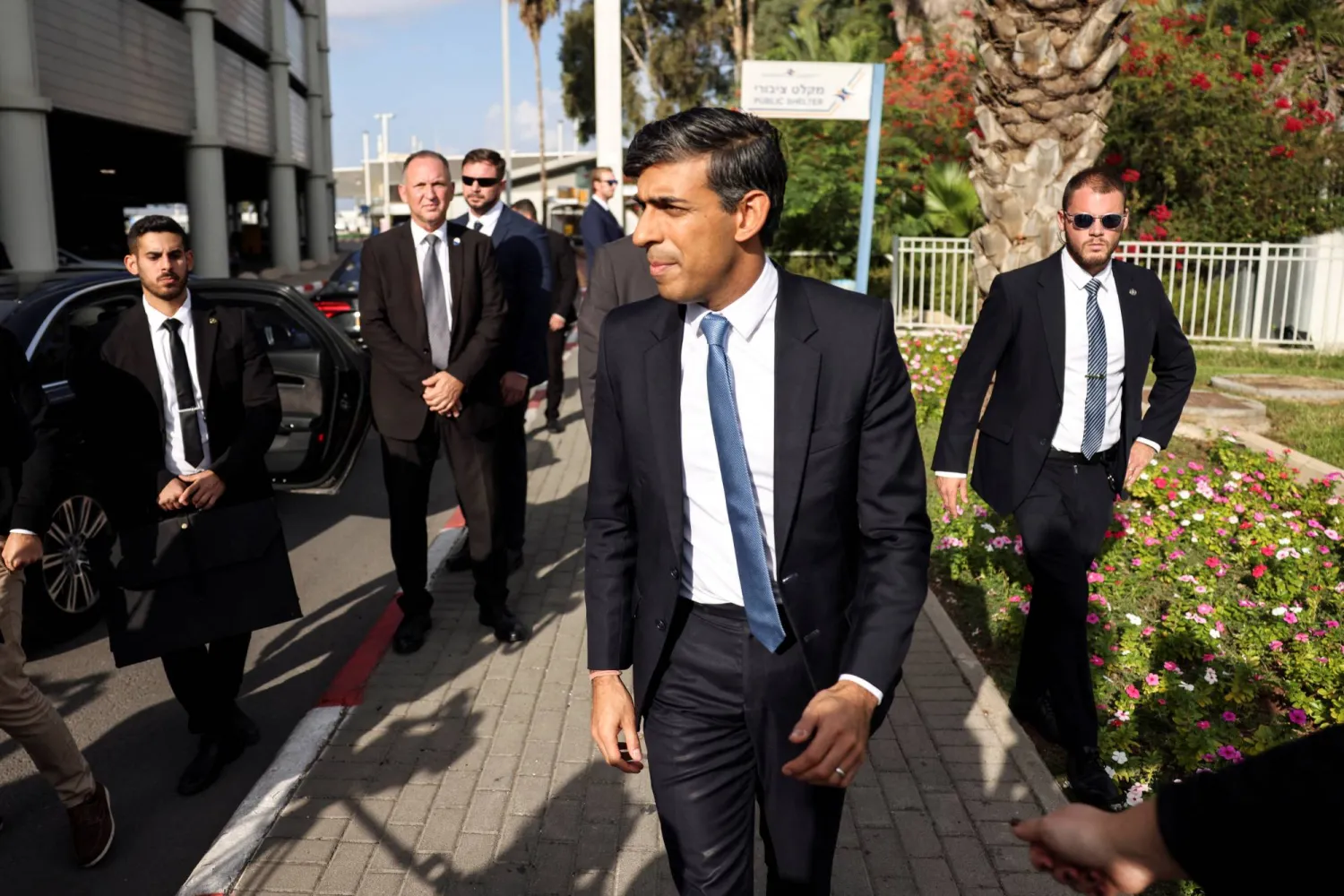British Prime Minister Rishi Sunak arrived in Israel on Thursday to demonstrate solidarity with a country reeling from an Oct. 7 rampage by Hamas gunmen and to hold talks with his Israeli counterpart Benjamin Netanyahu.
With Israel's counter-offensive against Hamas in Gaza spiraling, Sunak will share his condolences for the loss of life in Israel and in the Palestinian enclave and warn against further escalation, his office said.
"Above all, I'm here to express my solidarity with the Israeli people. You have suffered an unspeakable, horrific act of terrorism and I want you to know that the United Kingdom and I stand with you," Sunak told Israeli reporters after landing.
Sunak was due to visit other regional capitals after Israel, said Reuters.
In an early statement, he said a Gaza hospital blast on Tuesday that caused mass Palestinian casualties should be "a watershed moment for leaders in the region and across the world to come together to avoid further dangerous escalation of conflict", adding that Britain would be at "the forefront of this effort".
Sunak will also urge the opening up of a route to allow humanitarian aid into Gaza from Egypt as soon as possible, and to enable British nationals trapped in Gaza to leave.
"Every civilian death is a tragedy. And too many lives have been lost following Hamas’ horrific act of terror," Sunak said.
At least seven British nationals have been killed and at least nine are still missing since the attack on Israel, Sunak's spokesperson said on Wednesday.
Alongside Sunak's visit, British Foreign Secretary James Cleverly, who visited Israel last week, will travel to Egypt, Türkiye and Qatar over the next three days to discuss the conflict and seek a peaceful resolution, his office said.
Britain said the three countries were "vital to international efforts to uphold regional stability, free hostages and allow humanitarian access to Gaza".
Cleverly will meet with senior leaders there to discuss efforts to prevent the conflict spreading, the urgent need to open the Rafah crossing with Egypt to let aid reach those who need it and for Hamas to release hostages, Britain said.
UK's Sunak Visits Israel, Will Warn against Gaza War Escalation

British Prime Minister Rishi Sunak walks after landing at Ben Gurion International Airport in Lod, Near Tel Aviv, Israel October 19, 2023. REUTERS/Ronen Zvulun

UK's Sunak Visits Israel, Will Warn against Gaza War Escalation

British Prime Minister Rishi Sunak walks after landing at Ben Gurion International Airport in Lod, Near Tel Aviv, Israel October 19, 2023. REUTERS/Ronen Zvulun
لم تشترك بعد
انشئ حساباً خاصاً بك لتحصل على أخبار مخصصة لك ولتتمتع بخاصية حفظ المقالات وتتلقى نشراتنا البريدية المتنوعة







